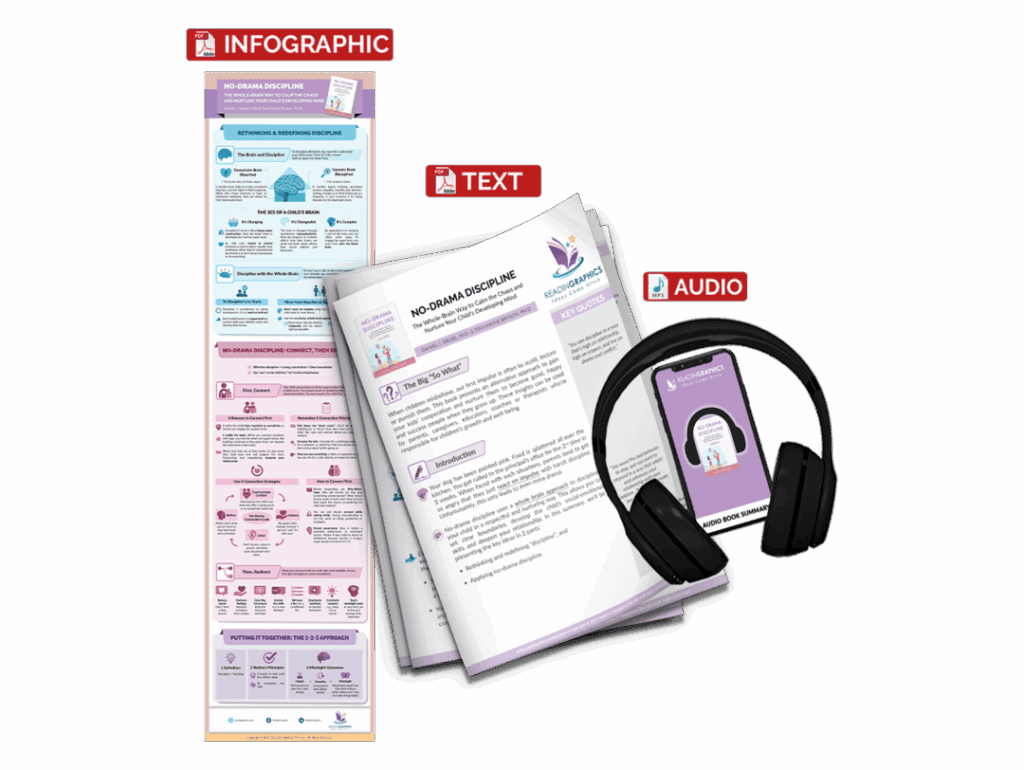
No-Drama Discipline: Fostering Cooperation and Respect in Children
In the realm of parenting, the term “discipline” often conjures images of stern lectures, time-outs, or even harsher methods. However, a growing movement advocates for a more compassionate and effective approach: no-drama discipline. This method focuses on building a strong connection with children, understanding the root causes of their behavior, and teaching them valuable life skills, all while minimizing conflict and emotional outbursts. This approach aims to create a nurturing environment where children feel safe, understood, and empowered to make positive choices.
No-drama discipline is not about being permissive or letting children get away with anything. Instead, it’s about responding to challenging behaviors with empathy, consistency, and a focus on teaching rather than punishment. It emphasizes understanding the child’s perspective, validating their feelings, and helping them develop self-regulation skills. This approach recognizes that children’s brains are still developing, and they may not always have the capacity to control their impulses or express their emotions effectively.
Understanding the Principles of No-Drama Discipline
The foundation of no-drama discipline rests on several key principles. By understanding these principles, parents can better implement this approach and create a more harmonious family dynamic.
Connection Before Correction
Before addressing a child’s misbehavior, it’s crucial to establish a connection with them. This means acknowledging their feelings, validating their perspective, and ensuring they feel heard and understood. When children feel connected, they are more receptive to guidance and more likely to cooperate. Connection can involve simple things like making eye contact, offering a hug, or simply listening attentively to what they have to say. This approach is the bedrock of a true no-drama discipline strategy.
Understanding the “Why” Behind the Behavior
Instead of simply reacting to a child’s behavior, no-drama discipline encourages parents to delve deeper and understand the underlying reasons for their actions. Is the child tired, hungry, frustrated, or seeking attention? By identifying the root cause of the behavior, parents can address the underlying need and prevent similar situations from arising in the future. This proactive approach is far more effective than simply punishing the child for their actions. For example, if a child is acting out because they are hungry, providing them with a healthy snack can often resolve the issue.
Teaching, Not Punishing
No-drama discipline prioritizes teaching over punishment. Instead of focusing on consequences, it emphasizes helping children learn from their mistakes and develop the skills they need to make better choices in the future. This can involve discussing the impact of their actions, brainstorming alternative solutions, and practicing new behaviors. The goal is to equip children with the tools they need to self-regulate and make responsible decisions. For instance, instead of simply sending a child to their room for hitting a sibling, parents can talk about how hitting hurts and teach them alternative ways to express their anger.
Consistency and Predictability
Children thrive on consistency and predictability. When rules and expectations are clear and consistently enforced, children feel more secure and are more likely to cooperate. This doesn’t mean being rigid or inflexible, but it does mean setting clear boundaries and following through with consequences when those boundaries are crossed. Consistency helps children understand what is expected of them and reduces the likelihood of misbehavior. A crucial component of no-drama discipline involves predictable responses.
Implementing No-Drama Discipline in Practice
While the principles of no-drama discipline are relatively straightforward, implementing them in practice can be challenging, especially in the heat of the moment. Here are some practical strategies for incorporating this approach into your parenting style.
Stay Calm and Regulated
One of the most important aspects of no-drama discipline is remaining calm and regulated yourself. When parents react to their children’s behavior with anger or frustration, it can escalate the situation and make it more difficult for the child to learn. Before responding, take a deep breath, center yourself, and remind yourself of your goals. If you’re feeling overwhelmed, it’s okay to take a break and ask for help. Remember, your own emotional state will significantly impact your child’s behavior.
Validate Your Child’s Feelings
Even if you don’t agree with your child’s behavior, it’s important to validate their feelings. This means acknowledging their emotions and letting them know that you understand how they feel. For example, instead of saying “Don’t be sad,” you could say “I can see that you’re feeling sad because you didn’t get the toy you wanted.” Validating your child’s feelings helps them feel heard and understood, which can make them more receptive to guidance. This validation is a core tenet of no-drama discipline.
Set Clear and Consistent Boundaries
Clear and consistent boundaries are essential for children’s development and well-being. When setting boundaries, be clear about what is expected of your child and what the consequences will be if they don’t follow the rules. Make sure the boundaries are age-appropriate and reasonable. Consistency is key – enforce the boundaries consistently, even when it’s difficult. An important aspect of no-drama discipline is adhering to established boundaries.
Offer Choices Whenever Possible
Giving children choices can empower them and reduce the likelihood of power struggles. Whenever possible, offer them choices within reasonable limits. For example, instead of telling them what to wear, you could ask them to choose between two outfits. Or, instead of telling them what to eat, you could offer them a choice between two healthy snacks. Offering choices gives children a sense of control and can make them more cooperative. This is a valuable tool in no-drama discipline.
Focus on Solutions, Not Blame
When addressing a child’s misbehavior, focus on finding solutions rather than assigning blame. Instead of dwelling on who was at fault, focus on how to resolve the situation and prevent it from happening again in the future. This can involve brainstorming alternative solutions, practicing new behaviors, and making amends for any harm that was done. The goal is to teach children problem-solving skills and help them learn from their mistakes. The no-drama discipline approach focuses on teaching these skills.
Use Logical Consequences
Logical consequences are consequences that are directly related to the misbehavior and help the child understand the impact of their actions. For example, if a child spills their juice, a logical consequence would be to have them help clean it up. Logical consequences are more effective than arbitrary punishments because they help children connect their actions to their outcomes and learn responsibility. A critical element of no-drama discipline is the application of logical consequences.
Practice Empathy and Compassion
Ultimately, no-drama discipline is about practicing empathy and compassion towards your child. Remember that children are still learning and developing, and they will make mistakes along the way. Instead of reacting with anger or frustration, respond with understanding and support. Help them learn from their mistakes, develop their skills, and grow into responsible and compassionate individuals. This approach fosters a strong parent-child relationship built on trust and mutual respect. The long-term effectiveness of no-drama discipline relies on empathy.
The Benefits of No-Drama Discipline
No-drama discipline offers numerous benefits for both children and parents. By fostering a more positive and supportive environment, this approach can lead to improved behavior, stronger relationships, and greater overall well-being.
- Improved Behavior: Children who are raised with no-drama discipline are more likely to develop self-regulation skills, make responsible choices, and cooperate with their parents.
- Stronger Relationships: This approach fosters a stronger parent-child relationship built on trust, respect, and mutual understanding.
- Reduced Conflict: By minimizing conflict and emotional outbursts, no-drama discipline creates a more harmonious and peaceful home environment.
- Increased Self-Esteem: Children who feel heard, understood, and supported are more likely to develop a positive self-image and believe in their abilities.
- Long-Term Success: The skills and values learned through no-drama discipline can help children succeed in all areas of life, from school to relationships to careers.
No-drama discipline is a powerful and effective approach to parenting that can transform your relationship with your child and create a more positive and supportive family environment. By focusing on connection, understanding, and teaching, you can help your child develop the skills and values they need to thrive. This approach emphasizes the importance of building a strong parent-child relationship based on mutual respect and understanding. It is a method that can be adapted to fit the needs of any family, regardless of their unique circumstances. The implementation of no-drama discipline can lead to a more peaceful and harmonious home environment.
In conclusion, embracing no-drama discipline is an investment in your child’s future and your family’s well-being. It’s about shifting your perspective from punishment to guidance, and from control to connection. By adopting this compassionate and effective approach, you can create a nurturing environment where your child feels safe, loved, and empowered to reach their full potential. [See also: Positive Parenting Techniques] [See also: Effective Communication with Children]

